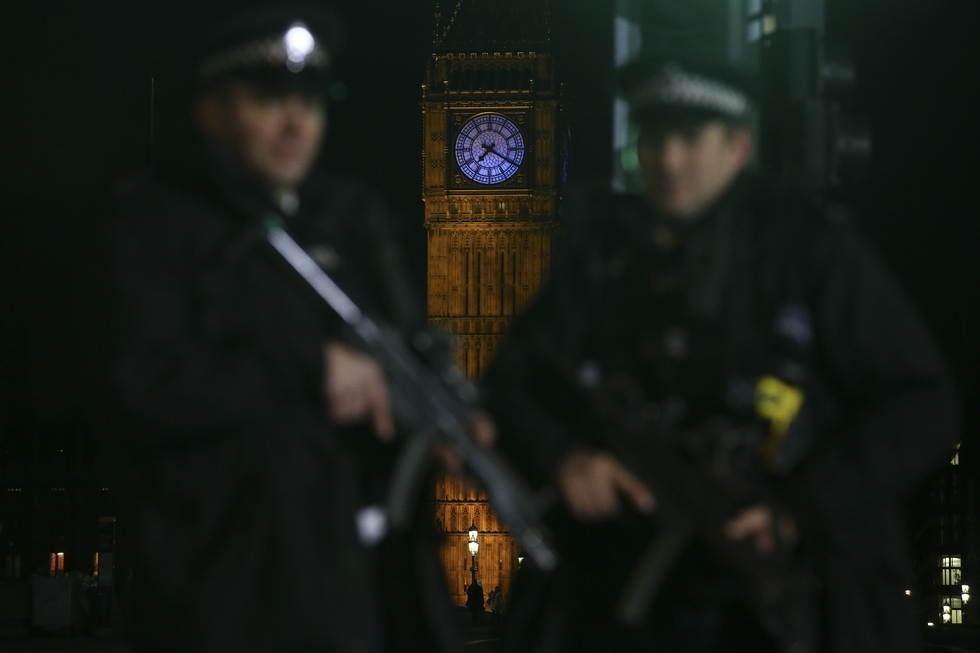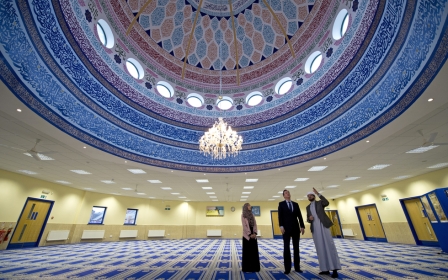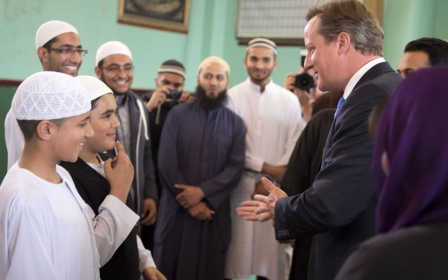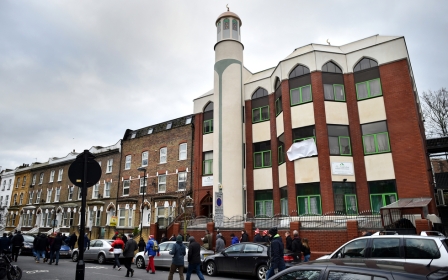The serious way forward to 'prevent' terror in Britain

Speaking to The Guardian's Owen Jones last week, journalist Peter Oborne described how a "soft apartheid towards Muslims" was emerging in Britain. His assessment of the government's categorisation of good "secular Muslims" and bad "non-violent devout Muslims" was spot on.
The compartmentalisation of Muslims was the inevitable outcome of the UK government's flagship counter-terrorism Prevent strategy, which became statutory under the Counter-Terrorism and Security Act in 2015.
Ever since its inception in 2006 under Tony Blair, the Prevent programme has been perceived with increasing suspicion by British Muslims. It has also been heavily criticised for its draconian policies, as well as the McCarthyite nature in which it has been implemented. This perception has indeed worsened over the years, and is now gradually becoming mainstream, with numerous non-Muslim academics, journalists and activists publicly criticising the strategy for not only targeting Muslims, but being in breach of their civil rights.
Underpinned by the academically refuted "conveyor belt theory," the Prevent strategy continues to wreak havoc in Muslim communities by singling out ideology as the main precursor to violent extremism; dismissing foreign policy grievances, socioeconomic deprivation and psychological instability as contributing factors towards radicalisation.
Prevent is not in the business of preventing terrorism, that responsibility is being adequately executed by normal policing. Prevent is and always has been about policing ideology - normative Islamic concepts and beliefs rooted in the hearts and minds of Muslims, which the establishment is hell-bent on diminishing. As a result, it is becoming abundantly clear that the British government, which claims to be the champion of freedom and liberty, is more than willing to disregard everything it claims to represent to fulfil this objective.
However, the reality is far from what the mainstream media and David Cameron would like us to believe. The general public, from different sectors which are now bound by law to become state spies, are gradually waking up and speaking out against Prevent. Dubbed by the cheerleaders of the establishment as the "Preventing-Prevent" lobby, a movement which began early last year is gaining momentum, and can no longer be dismissed as one that is being led by "Islamists" and "regressive lefties".
Over the past two weeks, there's been a relentless media onslaught against advocacy group CAGE, think-tank MEND, and members of the National Union of Students (NUS) for opposing Prevent on university campuses.
As expected, the media reports from the right-wing press have failed to criticise the actual work carried out by these organisations or their actual points of contention with Prevent. Instead, the media attacks against the aforementioned have been the finest example of unadulterated yellow journalism, illustrated by the typical character assassinations that have sadly become the hallmark of the Islamophobia industry.
For argument's sake, let's ignore everything the so-called Islamists and their "regressive lefty" allies have been spouting about Prevent. Allow me to present merely 11 examples, of which there are many, describing how Prevent is perceived in society, and hopefully, it will provide the rationale as to why grave concerns exist regarding Prevent, and the manner in which it is being implemented.
1. Last week, the chairman of Birmingham Central Mosque and the future Lord Mayor of the city, Muhammad Afzal, described Prevent as "racist" and called for its boycott for indiscriminately targeting Muslims.
2. In December 2015, Waltham Forest Council of Mosques, which represents more than 70,000 Muslims, vowed to boycott Prevent, and also described it as a "racist policy" which targets Islam and Muslims.
3. In March 2015, more than 240 leading Muslim organisations, scholars, imams, activists, teachers, doctors and journalists issued a joint statement against the CTS Bill, specifically the statutory standing of Prevent.
4. In July 2015, more than 280 academics and NUS members issued a public statement against Prevent, stating that it would have a "chilling effect on free and open debate and political dissent," adding that "it shifts attention away from grievances that drive individuals towards an ideology that legitimises political violence". The public statement concluded by calling for Prevent's total abolition.
5. Only last week, the Vice-Chancellor of Oxford University, Professor Louise Richardson, argued that "extremists" should be allowed to speak at universities, and banning them from doing so would be a fundamental impingement of free speech.
6. Former Metropolitan chief superintendent Dal Babu described Prevent as a "toxic brand".
7. Britain's most senior counter-terrorism officer, Sir Peter Fahy, stated that Prevent was hampered from the onset due to the Iraq war, and he argued that defining "extremism" was not the responsibility of the police.
8. The "Keep Mosques Independent" initiative, which is being led by the largest council of mosques from the north of the country, representing hundreds of thousands of British Muslims, recently issued a statement against state interference in madrassas under the Prevent programme.
9. In a unified example of public discontent, imams in east London backed by non-Muslim teachers, community organisations and student unions, claimed that Prevent was spying on Muslim students, which has led to "increasing division and to a breakdown of trust in schools and colleges".
10. MP for Bradford West, Naz Shah, who is also a member of the Home Affairs Select Committee for countering extremism, said in a recent statement that Prevent is perceived by many ordinary Muslims as "toxic".
11. The Independent Reviewer of Terrorism Legislation, David Anderson QC, criticised the Home Secretary Theresa May late last year for her policies under the Prevent strategy, as he believed they risked extending the "surveillance state" too far.
All the above examples occurred within the space of a year. Had I taken the time to cite all the concerns flagged about Prevent since 2006, it would have easily numbered in the hundreds. Yet, in contrast, how many Prevent "success stories" are the public aware of? And if there are cases where Prevent has actually disrupted terrorist activity, why is it not being celebrated from the rooftops of Downing Street? Is it because Prevent is being intentionally conflated with the achievements of ordinary policing?
Whatever the case may be, unless the British government removes the neoconservative hawks within its ranks, and starts listening to grassroots Muslim organisations, Muslim youth will continue to be "radicalised" and the already empowering "Preventing-Prevent" lobby will continue to go from strength to strength.
- Dilly Hussain is the deputy editor of British Muslim news site 5Pillars. He also writes for the Huffington Post, Al Jazeera English, and contributes to the Foreign Policy Journal and Ceasefire Magazine. He regularly appears on Islam Channel, Russia Today, and BBC TV and radio discussing Middle East and North African politics, British foreign policy, Islamophobia and the war on terror. Follow him on Twitter @dillyhussain88
The views expressed in this article belong to the author and do not necessarily reflect the editorial policy of Middle East Eye.
Photo: Armed police officer patrol with Elizabeth Tower (Big Ben) in the background ahead of the New Year's Eve fireworks in London on 31 December, 2015 (AFP).
New MEE newsletter: Jerusalem Dispatch
Sign up to get the latest insights and analysis on Israel-Palestine, alongside Turkey Unpacked and other MEE newsletters
Middle East Eye delivers independent and unrivalled coverage and analysis of the Middle East, North Africa and beyond. To learn more about republishing this content and the associated fees, please fill out this form. More about MEE can be found here.





